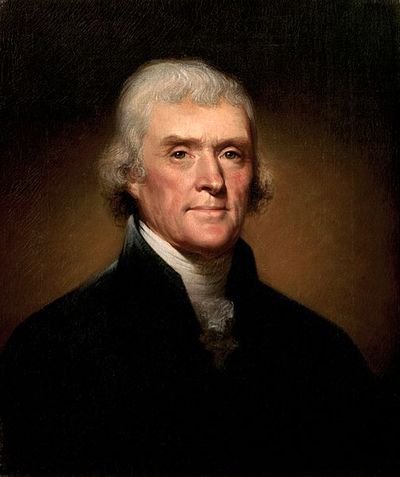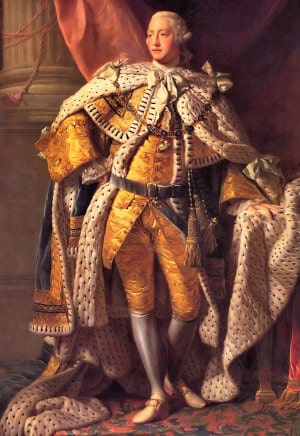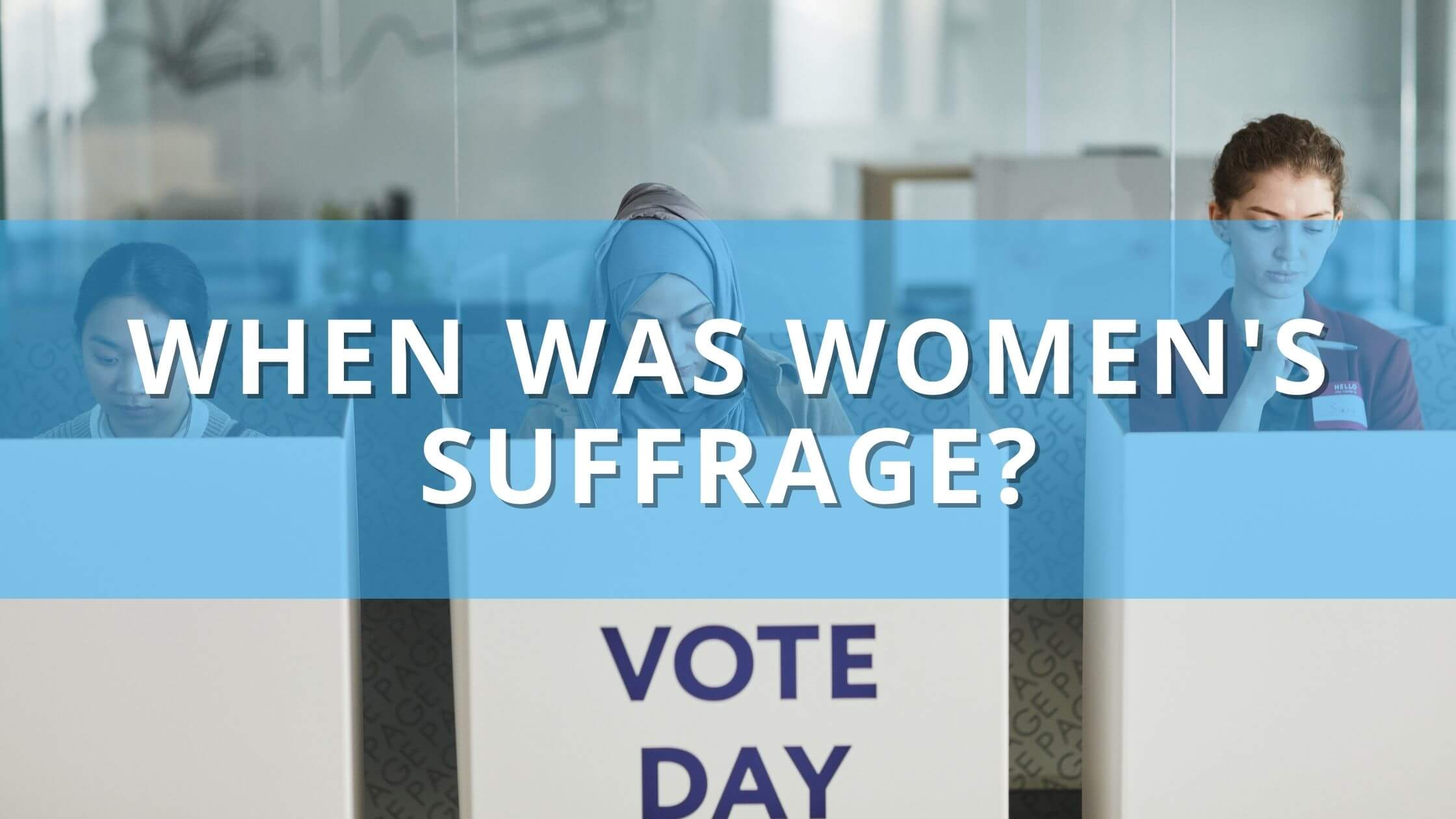Table of Contents
ToggleThe Declaration of Independence includes a specific set of rights defined as unalienable.
What is the definition of unalienable rights?
These are rights that, no matter what happens, may never be taken away from an individual.
What is the difference between unalienable rights and inalienable rights?
They mean exactly the same thing. However, the two words are usually used in different contexts. Unalienable rights are used when referencing the United States. Inalienable rights are used when discussing the United Nations and many European countries.
Life, Liberty, and the Pursuit of Happiness
Thomas Jefferson drafted the Declaration of Independence in 1775. Part of this important document is the term “Life, Liberty, and the Pursuit of Happiness.”
Over the years, this portion of the declaration has been the center of countless debates because, beyond those terms, the declaration provides no further details of its meaning.
Thomas Jefferson
Although Thomas Jefferson was the third President of the United States, he also played an integral part as a Founding Father of the nation.
At 33, he was the youngest delegate at the Continental Congress, but he was also responsible for drafting the Declaration of Independence.

Get Smarter on US News, History, and the Constitution
Join the thousands of fellow patriots who rely on our 5-minute newsletter to stay informed on the key events and trends that shaped our nation's past and continue to shape its present.

The thirteen original colonies were tired of British Imperial rule under King George. Eventually, war broke out between the colonies and the British government in what is now known as the American Revolution.
The colonies desired to formally declare independence from Britain, so in 1775, Thomas Jefferson sat down and began drafting the nation’s Declaration of Independence.
He was an eloquent statesman, well educated, and therefore chose his words carefully. The idea of the sanctity of one’s individual rights inspired him to identify three unalienable rights.
The Declaration of Independence
Once his declaration draft had been completed, Thomas Jefferson presented it to the Second Continental Congress.
On July 4, 1776, Thomas Jefferson, along with the other delegates of the Continental Congress, affixed their signatures to the document, formally declaring themselves free and independent of Great Britain.
It represented the first step in America’s independence as a sovereign nation. Ultimately, 56 statesmen signed the declaration.
They were the representatives of Georgia, North Carolina, South Carolina, Delaware, Virginia, Pennsylvania, Maryland, New Jersey, New York, Massachusetts Bay, New Hampshire, Connecticut, and Rhode Island.
These individuals are now commonly referred to as the United States’ Founding Fathers. And the Declaration of Independence is one of the most reprinted documents in American history.
What Is The Right To Life?
The first unalienable right identified in the Declaration of Independence is the right to life. The right to life is a state of being. That is, you are either alive or dead. This does not just refer to physical life or death but also to a metaphorical idealism that one cannot fully live under the tyranny of an oppressive government.
Having been under the rule of Great Britain for more than 100 years, the Colonialists had grown weary of the concept of living merely to fulfill the purpose of the King. They wanted the right to be the masters of their own homes, their own life, and the world around them. Without the right to live as they see fit, one must consider himself to already be dead.
What Is Liberty?
The second unalienable right identified in the Declaration of Independence was the right to liberty. Under the King’s rule, the Colonialists were subject to the King’s laws and, therefore, the King’s tyrannical courts. Under this system of rule, the average person living within the thirteen colonies could never see true justice under natural law.

The concept of liberty refers to the idealism that one has the natural right to be free from tyranny. Freedom was not a concept that the commoner could enjoy under the rule of the British Crown. The King taxed just about everything that a colonialist needed to survive and merely enjoy life to its fullest.
Moreover, liberty is the right to equality. Not just equality in everyday life, but every aspect of life. This means that if accused of a crime, a person has the right to defend themselves. That concept of justice is that it is blind and that one is truly innocent until his accuser can prove otherwise.
What Is The Pursuit of Happiness?
The final unalienable right identified under the declaration was the human right to pursue happiness. Under the rule of the British Crown, a Colonialist did not have the luxury of pursuing his or her happiness. Rather, their every breath we spent devoted to a King who lived across a vast ocean.
This concept provides an individual with the power and authority to determine his or her fate. A person does not have to be someone or do anything in particular simply because the British Crown told them to. Rather, they have the right to choose their own path in life. They have the right to pursue their dreams and anything that would make their life more enjoyable.
The American Dream
The idea of the pursuit of happiness lives on even today. The concept of the American dream is based on this pursuit. This dream is the absolute belief that anyone living in the United States can reach for and achieve their own version of what they believe to be a success.

Life under the British Crown meant that you were either endowed with wealth and power or nothing more than a mere peasant. Those born into a lowly class of life have no way of lifting themselves up the social ladder. In other words, those born poor died poor, and those born with wealth and power passed that wealth and power on to their heirs.
The American dream and the pursuit of happiness put an end to this way of life. A human being born to a poor family could work hard and achieve more in life than his parents before him. They could pursue their dreams, and with enough dedication, focus, and commitment to achieving those dreams, they could elevate themselves from a lowly status in life to a higher one.












12 Responses
Apparently, there is a wrong, confusing notion as to what it means “unalienable”. It is defined as something possessed by a human being that cannot be restrained or taken away… Then again, the unalienable rights to life, liberty and the pursuit of happiness are sometimes restrained or taken by the government. Can these rights be restrained or taken away?! Not by the definition of the word!
Additionally, governments in America are bigger than its citizens, in violation of its own constitution and the Founding Fathers wisdom and knowledge.
There are no such things as inalienable/unalienable rights.
The very fact that you need a weapon/gun to protect these so called inalienable “rights” is proof there not inalienable rights. If rights were unable to be taken away, they would not need to be defended. Inalienable rights can be and have been taken away throughout human history. So called inalienable rights have also been given away fully or in part and in many ways throughout history.
The origin of Rights 1. All rights are human creations. The social constructs we humans call rights are a creation of the human mind. There is no such thing as “Rights” independent of human society. 2. People have no rights other than that agreed upon with others in a civil society. All rights are by the consent of a group.
3. Human rights are not an inherent feature of nature. 4. Rights are constructed on common interests. Rights are accord power, status, and recognition by the consent of humans. 5. No Right is absolute. All rights are qualified and amendable.
So called “Rights” are agreements made between human beings implemented and put into practice by Human society. Michael Cottrill
Wrong.
Rights can be violated, in the same way that laws can. It doesn’t make the Right or the Law ‘go-away’, it just means that you have to be vigilant and fight back harder (>250%).
They Are All Mortal And They All Sleep Somewhere [TAAMATASS]. Someone messes with your rights, then you go wake them up sometime.
Rights are from the Creator God. Unalienable means our inherent rights from the Absolute authority of the Universe.
Governments that deny these God given rights are foolish and cursed. America has been blessed because our government was founded upon this principle and has evolved to honor unalienable rights in all people of our land. Only a fool would say in his heart, “There is no God.”
You are absolutely wrong. The courts have ascribed a meaning to inalienable that is not the same as their definition for the word inalienable. For example:
“Inalienable Rights which are not capable of being surrendered or transferred without the consent of the one possessing such rights” Morrison v. State, Mo. App., 252 S.W.2d 97, 101 (1952)
What it boils down to is that the government grants inalienable “rights” whereas your unalienable Rights come from a Creator and are above the law
Inalienable/Unalienable are synonymous and can be and have been interchanged.
Your problem lies with the belief that “Rights come from a Creator and are above the law” The religious may take it that way, but it turns out man’s Creator is Nature and Nature does not recognize or acknowledge Rights of any kind.
“We are endowed by our Creator with unalienable rights…” is stated in the Declaration of Independence.” That’s not “the religious” taking it that way. The statement is clear. What’s also clear is that, as John Adams said, “Our Constitution is made only for a moral and religious People.”
The Law of Identity defines reality and Niconachean Ethics are the habits for one to live a life with purpose, with one’s own existence and one’s volitional choice to be happy, because one is worthy to be happy.
These are the origins of unalienable rights and the moral justification of one’s own judgement, is to be final arbiter.
Kant canonized the doubt and futility of mans reason.
The Founding Fathers formed the Federal Government to protect the unalienable rights of all people of our new nation. The Founding Fathers, if they were here would agree that life is just as important in one state as in another. The Supreme Court did us a disservice when they turned the right to life over to the states, because now our nation is divided as it was before the 13th Amendment became law. That ruling needs to be resinded!
Shouldn’t any right, as far as written and determined in a legal document, be taken on it’s face, as the true and intended determination of said right without any twisting and bending of the definition by those who seek an outcome that suits their immediate advantage..?
America was founded on the presupposition that men have unalienable Rights. Any argument to the contrary is conjecture. For example, they acknowledged a Christian God in the Constitution by signing their names “In the year of our Lord…” We can debate all day long, but the documents are predicated upon certain presuppositions.
Secondary to that, in LAYMAN language, inalienable and unalienable are synonyms; in LEGAL PARLANCE they are defined differently. And it comes down to WHO you believe the grantor of your Rights is. IF the government grants you your rights (sic) then all you have are revocable privileges. It’s that simple. IF, on the other hand, you accept that unalienable Rights are given by a Creator, then those Rights cannot be aliened (infringed upon) by the government.
Earliest court decisions found that unalienable Rights are inherent, pre-existing, natural, absolute Rights that are not dependent upon the government for their existence AND are above the law making power. An “inalienable” right was found to be a government granted privilege in that you can agree to giving it up. You have an unalienable Right to Freedom of Speech; however, if you get arrested you have an inalienable right to remain silent.
The second amendment is considered specifically related to an unalienable right, just as are all the Bill of Rights. All beings, human and others have the unalienable right to self protection and the right to keep
(have) and bear (carry) arms enables human beings to protect themselves from all enemies, foreign and domestic. This is meant to include tyrannical governments as well as others wishing to do harm. The U.S. Department of Justice has a Civil Rights Division and within that division is a Second Amendment Sub Division. We are seeing state and local laws, meant to limit rights to keep and carry, unconstitutional and will until all states equally recognize this unalienable right.